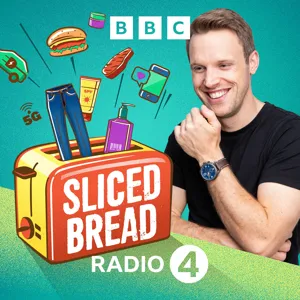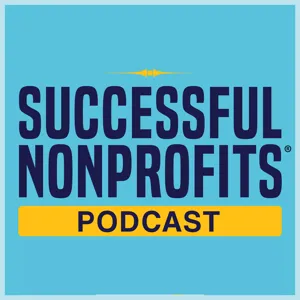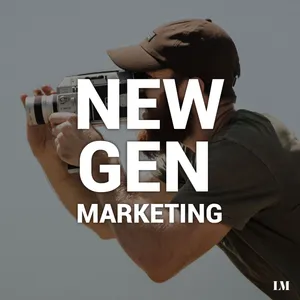Podcast Summary
Dishwashing Efficiency: Hand vs. Machine: Properly using a dishwasher with its eco setting and a pre-rinsed load can save water and energy compared to washing dishes by hand.
When it comes to washing dishes, there are various methods, and each person has their preferred way. However, Professor Rainer Stamminger from the University of Bonn in Germany conducted a study and found significant variations in water and energy consumption among individuals. The professor's top tips for minimizing water and energy footprint include removing food particles before washing, using the dishwasher's eco setting, and avoiding pre-rinsing dishes unless necessary. Regarding the debate about dishwashers being more efficient and eco-friendly than washing up by hand, the professor's research indicates that dishwashers can save water and energy, especially when fully loaded. However, it's important to note that the energy used for heating the water in a dishwasher can offset the water savings. Overall, the professor's research suggests that dishwashers can be more efficient and eco-friendly than washing up by hand when used correctly and fully loaded.
Efficient Ways to Wash Dishes: Scrape dishes, soak hard items, fill sink halfway with hot water, wipe clean, rinse, and use dishwasher efficiently to save water and energy
There are more efficient ways to wash dishes without wasting water and energy. Instead of pre-rinsing dishes under running water, scrape off loose food debris and soak hard, soiled items in cold water with detergent. Fill the sink halfway with hot water and add detergent without producing foam. Wipe dishes clean with any implement, then rinse them in a separate bowl of cold water. For dishwashers, load dishes in baskets with spray arms that recirculate and filter water, using only about 5 liters per load. By following these methods, you can save water, energy, and ensure thorough cleaning.
Three loads of water in dishwasher: pre-rinsing, cleaning, and rinsing: Adding salt eliminates water hardness, rinse aid reduces water surface tension, and proper loading ensures effective cleaning and drying in a dishwasher
The dishwasher cleaning process involves three loads of water: a pre-rinsing load, a cleaning load, and a rinsing load. The salt added to the dishwasher eliminates water hardness, preventing limescale build-up on dishes. Rinse aid, added during the rinsing process, reduces water surface tension, allowing water to evaporate quickly and leaving dishes dry. Pre-rinsing or pre-scrubbing the dishes before loading is unnecessary, as the first wash takes care of this. Dishes should be loaded with pots and pans in the lower basket and plastic items in the upper basket to ensure effective cleaning and prevent spills.
Effective Dishwasher Usage: Place heavily soiled items in the lower basket, ensure small gaps, use eco setting, mix cutlery, and run dishwasher full loaded for efficient and water-saving dish cleaning
When using a dishwasher, placing heavily soiled items in the lower basket and ensuring a small gap between items for water beams to pass through, is more effective for thorough cleaning. The eco setting, which uses less water and energy due to the action of enzymes, is the best solution for those willing to wait for a longer cleaning cycle. Additionally, mixing cutlery and ensuring individualization prevents items from touching and hindering cleaning. The dishwasher uses significantly less water compared to hand washing when run full loaded. Therefore, following these tips can lead to efficient and water-saving dish cleaning.
Is a dishwasher more eco-friendly than handwashing?: Dishwashers are generally more efficient and eco-friendly than handwashing, but consider specific circumstances and proper use for optimal results.
Dishwashers are generally more efficient in terms of water and energy use compared to handwashing, despite some differences in energy consumption and the environmental impact of producing the appliance. However, there are exceptions, such as for delicate or wooden items, and for smaller households using countertop dishwashers. When considering the full life cycle, using a dishwasher over its 10-13 year lifespan results in lower environmental effects, particularly regarding greenhouse gas emissions, compared to manual washing. Overall, dishwashers are a practical and eco-friendly solution for most households, but it's essential to consider the specific circumstances and the proper use of the appliance.
Unexpected savings from effective communication and collaboration during daily tasks: Following hand washing best practices and skipping the pre-rinse step before loading the dishwasher can lead to significant water, detergent, and energy savings.
Effective communication and collaboration in everyday tasks, such as washing dishes, can lead to unexpected discoveries and savings. For instance, following hand washing best practices can reduce water, detergent, and energy use significantly. Additionally, skipping the pre-rinse step before loading the dishwasher can save even more water. These discoveries may lead to practical changes in our daily routines and contribute to a more sustainable lifestyle. Furthermore, the debate around pre-rinsing dishes highlights the importance of considering the overall water usage, including the potential savings from skipping the pre-rinse step and the impact of rinsing dishes separately.
Dishwashers are more efficient than hand washing: Dishwashers save water and are generally more energy efficient than hand washing, but require monthly 60-degree washes to prevent bacterial growth.
Despite common beliefs, dishwashers are generally more efficient in terms of energy and water consumption compared to hand washing, especially when using eco settings. However, the longer wash times associated with eco settings are due to the different cleaning methods used, which rely on enzymes in the detergent rather than high temperatures. It's important to note that regular eco washes should be supplemented with a monthly 60-degree wash using a bleach containing cleaner to maintain the dishwasher and prevent the growth of microorganisms. The energy consumption difference between dishwashers and hand washing is minimal, but the water savings are significant, with dishwashers using around 11 liters of water per cycle compared to 50 liters for hand washing. If you're considering upgrading your dishwasher, opting for a more efficient full-size model is recommended, as slimline dishwashers use slightly more energy and have fewer dish capacity.
Get a good clean on a budget with essential dishwasher features: Budget dishwashers under £300 provide essential features for effective cleaning and save around £45 annually on energy costs
You don't necessarily need to spend a lot of money on a dishwasher to get a good clean. According to experts, some of the best budget dishwashers cost less than £300, and they found that running the eco program can save you around £45 a year in energy costs. Beyond that, you're essentially paying for additional features like an anti-flood sensor, auto door open feature, and Bluetooth or smart capabilities. So, if you're looking to save money on a dishwasher, consider opting for a budget model with these essential features. Additionally, some people even use unconventional methods like using their dogs to do the first rinse or soaking plates before loading them. However, these methods may not be as effective or hygienic as using a dishwasher. Overall, the debate about whether to spend more on a dishwasher or not has been settled, and the answer is that you can get a good clean without breaking the bank.






